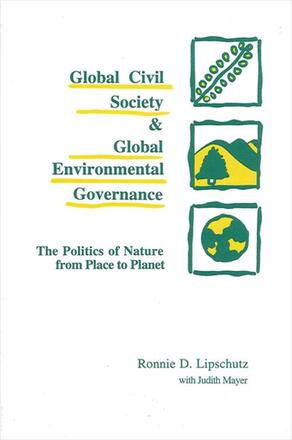
Global Civil Society and Global Environmental Governance
The Politics of Nature from Place to Planet
Alternative formats available from:
Explores the growing role of global civil society and local environmental activism in the management and protection of the environment worldwide.
Description
What will it take to protect the global environment? In this book, Ronnie D. Lipschutz argues that neither world government nor green economics can do the job. Governmental regulations often are resisted by those whose behavior they are intended to change, and markets—even green ones—look to profits more than to protection. What will be needed, Lipschutz believes, is not global management but political action through community- and place-based organizations and projects. People acting together locally can have a cumulative impact on environmental quality that is significant, long lasting, and widespread.
The comparative case studies of environmental activism in Northern California, Hungary, and Indonesia (the latter written by Judith Mayer) illustrate one of the central premises of this book: that local action is linked increasingly to globe-spanning networks of knowledge and practice, in what Lipschutz calls global civil society. The result is a system of governance that is both local and global, to which states and international organizations are turning increasingly for help and advice.
Reviews
"Lipschutz's book is a major work, grand in its scope, sound in its analysis, compelling in its presentation, provocative in its theses, and highly relevant to the human condition at this stage in history. His treatment of the global environment as a social construction is persuasive and productive of major insights and recommendations. And his conception of global governance as dynamics that unfold at local levels and cumulate to an overall process is profoundly accurate even as it flies in the face of much conventional wisdom relative to environmental issues. While the environmental field is marked by myriad books that probe the field, none comes close to the special qualities that distinguish this book. " — James N. Rosenau, University Professor of International Affairs, The George Washington University
"This book grapples with a whole complex of interrelated theoretical and policy issues surrounding the global environmental problematique. Lipschutz has done an awe-inspiring job of synthesizing literature from diverse fields: social theory, geography, international relations, anthropology, environmental ethics, epistemology, economics, and history. This is an admirable and provocative piece of original research. " — Karen Litfin, University of Washington.